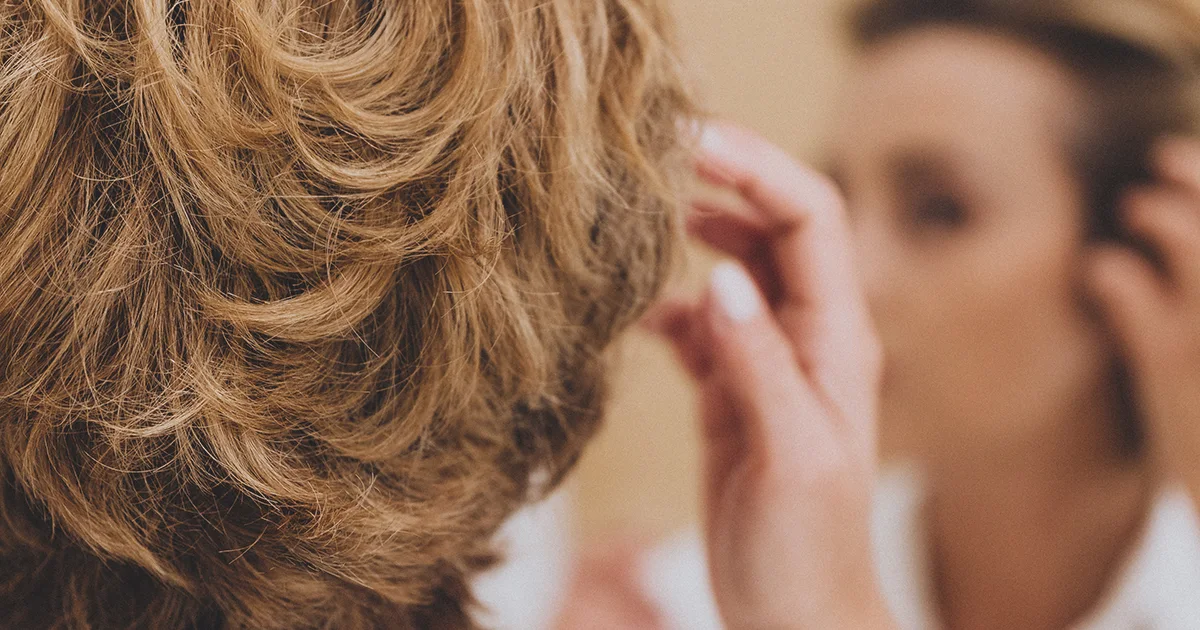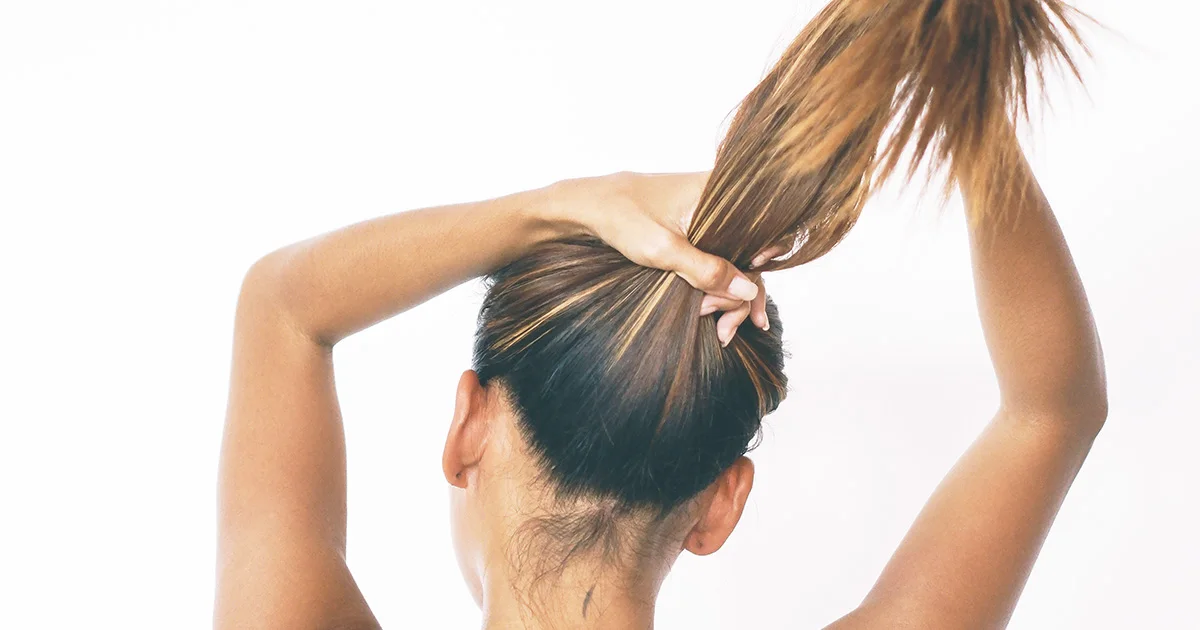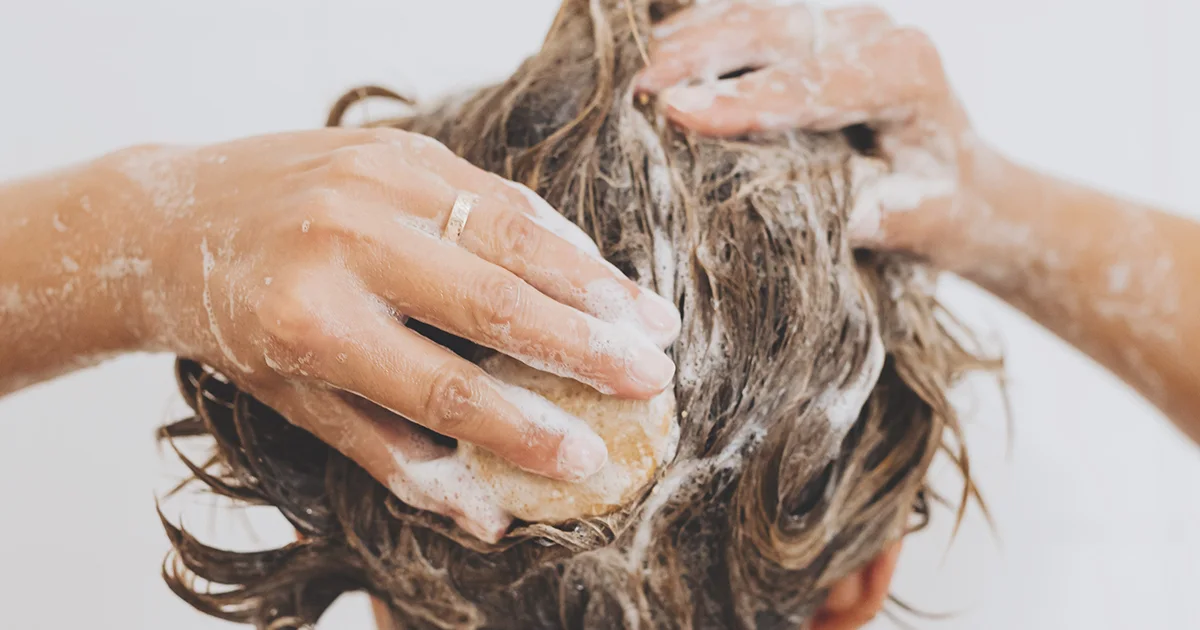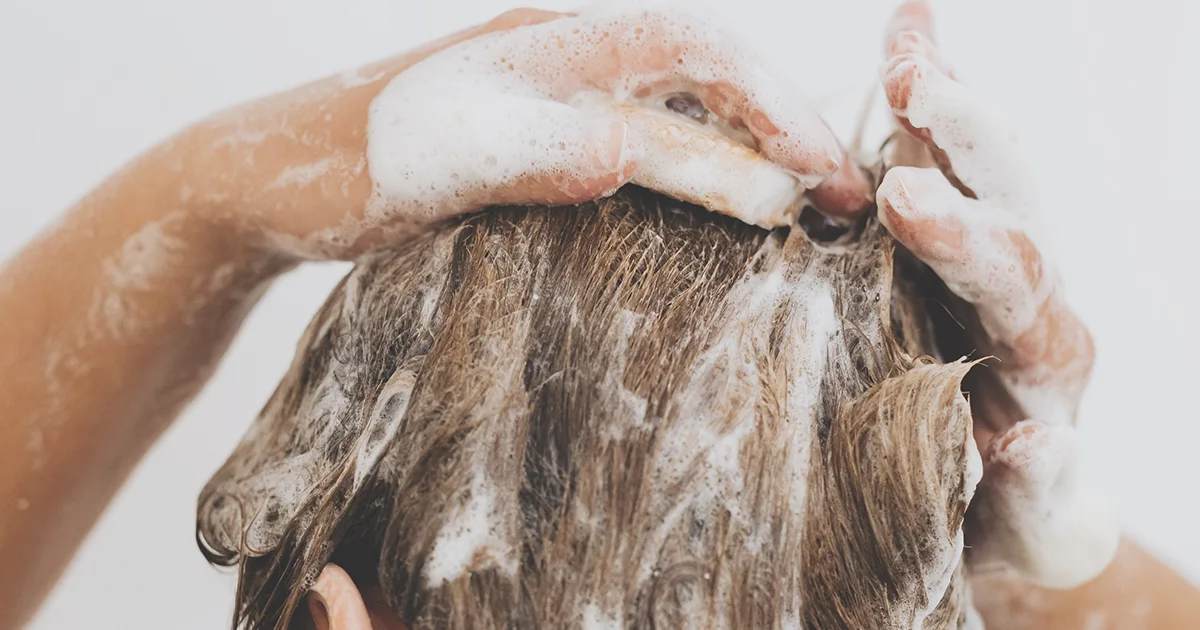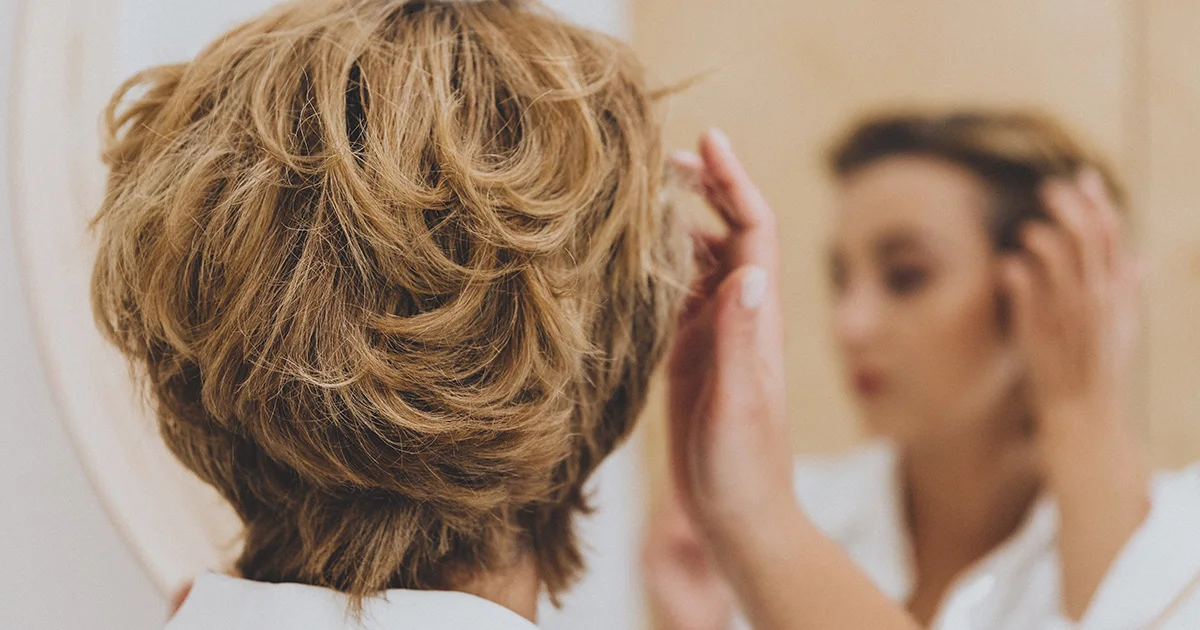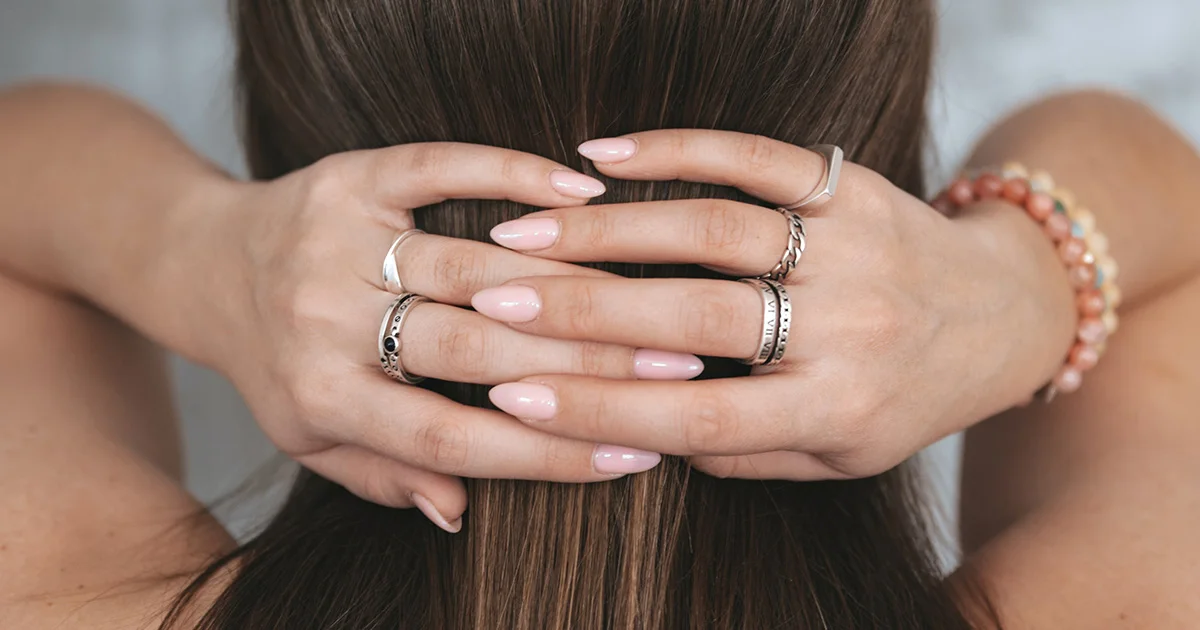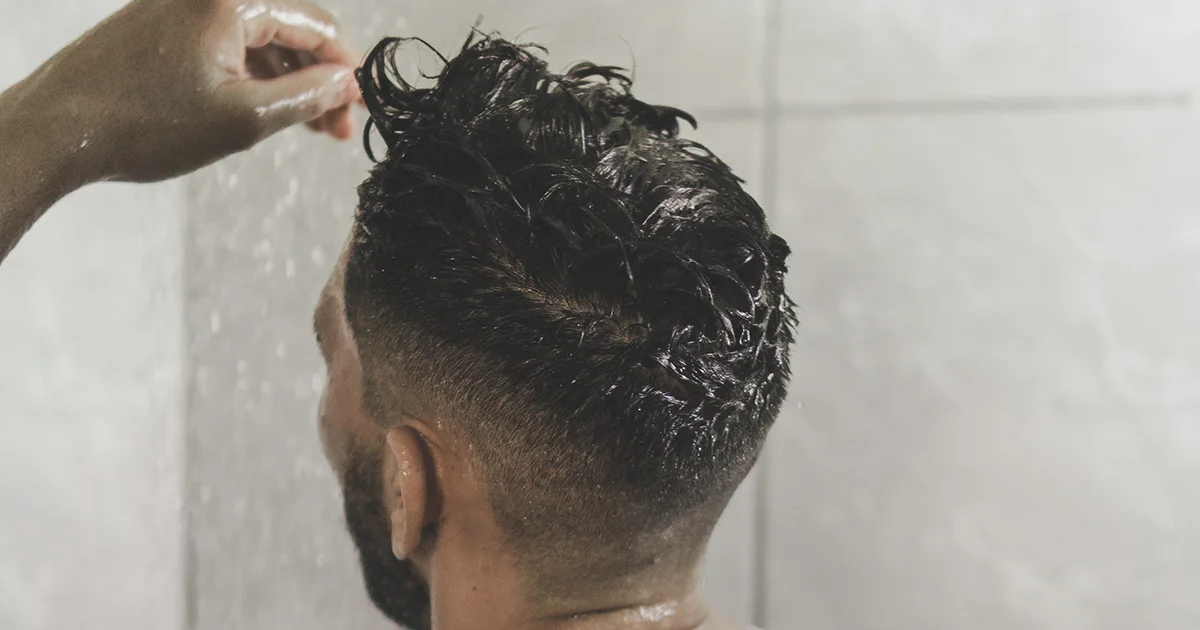Here's what we'll cover
Here's what we'll cover
Here's what we'll cover
If you’ve ever dealt with a particularly itchy scalp, you may have noticed hairs flying off by the dozens as you scratch. But does that mean that itchy scalp and hair loss are connected? Not necessarily. Learn more about what might be causing your itchy scalp and hair loss, and what you can do to resolve both symptoms.
Are itchy scalp and hair loss connected?
The short answer is, sometimes. It’s common to experience both itchy scalp and hair loss at the same time, so they may seem connected, but they can occur independently. However, sometimes both can be caused by the same underlying condition. Fungal infections, like ringworm, and allergic reactions to hair care products can cause your scalp to itch and damage your follicles resulting in folliculitis (inflamed hair follicles) and leading to hair loss (Vázquez-Herrera, 2018; Rattanakaemakorn, 2019).
In some cases, one occurs before the other. For example, hair loss can lead scar tissue to develop on the scalp, which can cause itchiness. Or, an itchy scalp can cause you to scratch your scalp too much or too hard, damaging the hair follicles and skin, leading to hair loss, as well as bleeding and scabbing (Vázquez-Herrera, 2018; Rattanakaemakorn, 2019).
What causes itchy scalp and hair loss?
Many common conditions can cause itchy scalp and hair loss. Some of these common conditions include:
Allergic reaction
Sometimes, scalp itching is a sign you’re allergic to an ingredient in one of your hair care products. Some of the fragrances and preservatives in shampoos, conditioners, hair dyes, and other styling products are common allergens that can lead to contact dermatitis. Symptoms of contact dermatitis include a red or scaly rash and an itchy scalp (Vázquez-Herrera, 2018). You can often relieve symptoms by simply switching to hypoallergenic hair care products (Rattanakaemakorn, 2019).Keep in mind that even if you’ve used a particular product for ages and it hasn’t caused a problem, you can suddenly develop a reaction to it. If you use multiple products, the best way to figure out which one might be causing the problem is to stop all of them and add them back into your routine one at a time to figure out which one (if any) is the culprit.
Bacterial or fungal infection
Folliculitis describes a condition when the hair follicles become inflamed, often due to an underlying bacterial or fungal infection. While it’s most common following hair removal procedures, it can happen anywhere, including on the scalp.
The good news is that many of the infections that cause folliculitis can be treated quickly, even by something as simple as better hair hygiene. To resolve a stubborn case, a healthcare provider may also recommend topical creams, oral antibiotics, and other medications (Winters, 2022).
Scalp ringworm, or tinea capitis, is another fungal infection that can affect the hair on the scalp, as well as the eyelashes or eyebrows. Symptoms include red patches, itching, scales, and hair loss. It is more common in children but anyone can experience it. Both the hair follicle and hair shaft may become inflamed. This causes itchiness and affects the hair's integrity, so the hair becomes brittle and breaks easily. Scalp ringworm typically begins in one area and will continue to spread unless treated with antifungal medications, steroids, and shampoos (Al Aboud, 2022).
Another fungal infection that can cause itchy scalp and hair loss is the malassezia fungus, which can lead to seborrheic dermatitis and dandruff. Dandruff primarily affects the scalp, while seborrheic dermatitis can also affect other parts of the body. Both scalp conditions include flaky skin as a symptom. Seborrheic dermatitis can also cause itching, scaling, hair loss, and inflammation, while dandruff usually just leads to itching without any inflammation (and usually no hair loss) (Borda, 2015).
Scabies
More of an infestation than an infection, scabies are small mites that can cause severe itching. While their bites are usually found between the fingers, they can appear anywhere on your body and cause severe itching that may result in hair loss if it’s on your scalp.
Autoimmune conditions
Different forms of alopecia (hair loss) may cause an itchy scalp and hair loss. For example, lichen planopilaris is a rare, progressive autoimmune disorder that causes scarring and hair loss on the scalp. Additional symptoms can include itching, burning, and pain. Treatment often involves the use of oral medications, and topicals like corticosteroids and minoxidil (Rogaine) to help improve hair growth (Lepe-a, 2022).
Alopecia areata is another autoimmune condition affecting the hair, but unlike lichen planopilaris, it doesn’t lead to scarring. Alopecia areata affects about 2% of people and is more common in people with a family history of alopecia areata. The condition causes clearly-defined bald patches on the scalp. For as many as 50% of people who develop the condition, these patches may disappear within a year, but it is common to experience additional episodes of hair loss later (Lepe-b, 2022).
While the alopecia areata doesn’t usually cause an itchy scalp, many people with the condition report feeling a burning, itching, or tingling sensation in the area before their hair begins to fall out.
Oral Minoxidil Important Safety Information: Read more about serious warnings and safety info.
Skin conditions
Atopic dermatitis is a form of eczema with symptoms like itchiness, dry skin, and red or brown patches that can appear bumpy and crusty (Kolb, 2022). And nearly half of people with alopecia areata (mentioned above) also have atopic dermatitis (Lepe-b, 2022).
Since it’s a chronic condition, management usually focuses on controlling symptoms since there is no cure. Management includes daily application of specific types of moisturizers and sometimes also topical steroids. If you have atopic dermatitis, your healthcare provider may also recommend keeping a journal to be able to identify and then avoid anything that triggers an eczema flare-up (Kolb, 2022).
Scalp psoriasis is another chronic skin condition that may affect the scalp. Psoriasis is characterized by raised plaques on the skin, which have a scaly, silvery appearance. Scratching patches of psoriasis can also cause infections that lead to folliculitis and further hair loss.
There is no cure for psoriasis, but your provider may prescribe special moisturizers and topical treatments to reduce scalp itching or improve skin health. Phototherapy, which combines ultraviolet light with other forms of light, can also be helpful (Nair, 2022; Leon, 2019).
Does dandruff cause hair loss?
Dandruff may potentially cause hair loss, but scientists don’t know for sure. Given that dandruff contributes to poor scalp health, it may lead to premature hair loss. It’s also possible that the oxidative stress (when the body can’t cope with high levels of harmful free radicals) that conditions like dandruff and seborrheic dermatitis place on the scalp and hair follicles may limit hair growth. Some anti-dandruff shampoos have been shown to reduce hair loss, even among people without a scalp condition (Trüeb, 2018).
How to treat itchy scalp
If you’re dealing with an itchy scalp, your healthcare provider or dermatologist can diagnose the underlying cause and recommend treatment options. Some treatment options may include antifungal medications, steroids, and anti-dandruff shampoos fortified with zinc and other anti-inflammatory ingredients.
Additionally, the following home remedies may provide relief.
Explore essential oils
Both tea tree oil and fireweed extract have been shown to fight dandruff and itchiness (Loing, 2017; Satchell, 2002). When using essential oils, avoid applying them directly to the skin. Dilute them before application or add a small amount to your shampoo.
Follow a hair-healthy diet
Incorporate more foods that promote healthy hair. Eating foods rich in vitamins A, D, and E, selenium, biotin, iron, and zinc is a good idea. Most people get enough of these vitamins from their diets and don’t need supplements unless they have a vitamin deficiency (Almohanna, 2019).
Be kind to your hair
Some people are more sensitive to harsh chemicals or fragrances used in non-hypoallergenic hair care products, so avoid over-shampooing your hair or using products with harsh chemicals. (Lepe-b, 2022; Rattanakaemakorn, 2019). And above all, try not to scratch the itch!
A dermatologist can diagnose the underlying cause of your hair loss—whether it’s an infection or pattern baldness—and recommend hair loss treatment options. Depending on the cause of hair loss, that may be a special type of shampoo, diet changes, or topical or oral medications.
DISCLAIMER
If you have any medical questions or concerns, please talk to your healthcare provider. The articles on Health Guide are underpinned by peer-reviewed research and information drawn from medical societies and governmental agencies. However, they are not a substitute for professional medical advice, diagnosis, or treatment.
References
Al Aboud, A. M. & Crane, J. S. (2022). Tinea capitis. StatPearls . Retrieved on Feb. 13, 2023 from https://pubmed.ncbi.nlm.nih.gov/30725594/
Almohanna, H. M., Ahmed, A. A., Tsatalis, J. P., & Tosti, A. (2019). The role of vitamins and minerals in hair loss: A review. Dermatology and Therapy, 9 (1), 51–70. doi:10.1007/s13555-018-0278-6. Retrieved from https://pubmed.ncbi.nlm.nih.gov/30547302/
Borda, L. J. & Wikramanayake, T. C. (2015). Seborrheic dermatitis and dandruff: A comprehensive review. Journal of Clinical and Investigative Dermatology , 3 (2), 10.13188/2373-1044.1000019. doi:10.13188/2373-1044.1000019. Retrieved from https://pubmed.ncbi.nlm.nih.gov/27148560/
Kolb, L. & Ferrer-Bruker, S. J. (2022). Atopic dermatitis. StatPearls . Retrieved on Feb. 13, 2023 from https://pubmed.ncbi.nlm.nih.gov/28846349/
Koyama, T., Kobayashi, K., Hama, T., et al. (2016). Standardized scalp massage results in increased hair thickness by inducing stretching forces to dermal papilla cells in the subcutaneous tissue. Eplasty , 16 , e8. Retrieved from https://pubmed.ncbi.nlm.nih.gov/26904154/
Leon, A., Rosen, J. D., Hashimoto, T., et al. (2019). Itching for an answer: A review of potential mechanisms of scalp itch in psoriasis. Experimental Dermatology , 28 (12), 1397–1404. doi:10.1111/exd.13947. Retrieved from https://pubmed.ncbi.nlm.nih.gov/31022307/
Lepe, K. & Zito, P. M. (2022-a). Alopecia areata. StatPearls . Retrieved on Feb. 13, 2023 from https://pubmed.ncbi.nlm.nih.gov/30725685/
Lepe, K., Nassereddin, A., & Salazar, F. J. (2022-b). Lichen planopilaris. StatPearls . Retrieved on Feb. 13, 2023 from https://pubmed.ncbi.nlm.nih.gov/29262050/
Loing, E., Lamarque, E., & Borel, M. (2017). New targets in the battle against dandruff. Journal of Cosmetic Science , 68 (1), 107–113. Retrieved from https://pubmed.ncbi.nlm.nih.gov/29465391/
Nair, P. A. & Badri, T. (2022). Psoriasis. StatPearls . Retrieved on Feb. 13, 2023 from https://pubmed.ncbi.nlm.nih.gov/28846344/
Rattanakaemakorn, P. & Suchonwanit, P. (2019). Scalp pruritus: Review of the pathogenesis, diagnosis, and management. BioMed Research International , 2019 , 1268430. doi:10.1155/2019/1268430. Retrieved from https://pubmed.ncbi.nlm.nih.gov/30766878/
Satchell, A. C., Saurajen, A., Bell, C., & Barnetson, R. S. (2002). Treatment of dandruff with 5% tea tree oil shampoo. Journal of the American Academy of Dermatology, 47 (6), 852–855. doi:10.1067/mjd.2002.122734. Retrieved from https://pubmed.ncbi.nlm.nih.gov/12451368/
Trüeb, R. M., Henry, J. P., Davis, M. G., & Schwartz, J. R. (2018). Scalp condition impacts hair growth and retention via oxidative stress. International Journal of Trichology, 10 (6), 262–270. doi:10.4103/ijt.ijt_57_18. Retrieved from https://pubmed.ncbi.nlm.nih.gov/30783333/
Vázquez-Herrera, N. E., Sharma, D., Aleid, N. M., & Tosti, A. (2018). Scalp itch: A systematic review. Skin Appendage Disorders , 4 (3), 187–199. doi:10.1159/000484354. Retrieved from https://pubmed.ncbi.nlm.nih.gov/30197900/
Winters, R. D. & Mitchell, M. (2022). Folliculitis. StatPearls . Retrieved on Feb. 13, 2023 from https://pubmed.ncbi.nlm.nih.gov/31613534/


